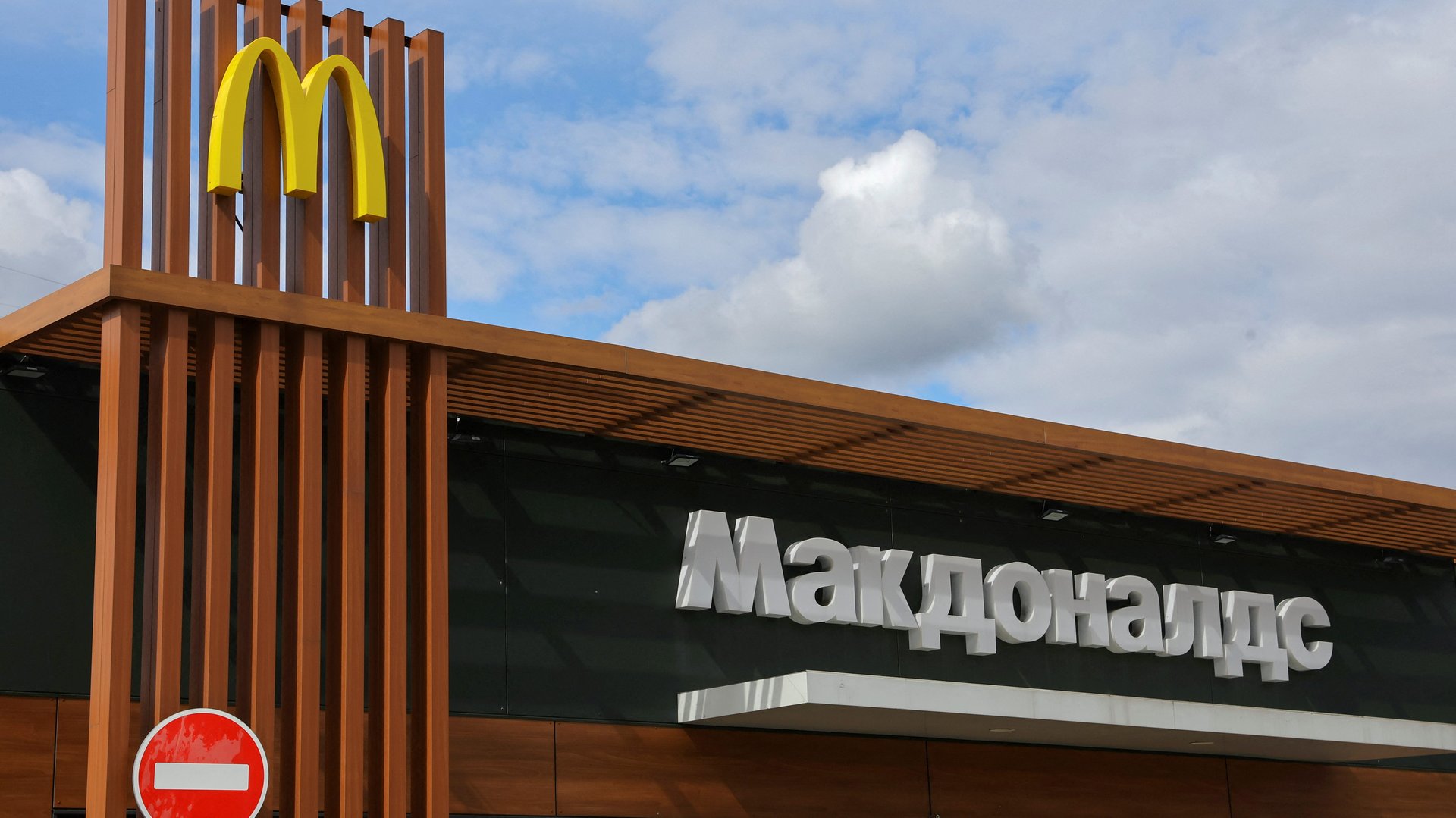McDonald’s leaves Russia—will other brands follow?
Russia’s invasion of Ukraine has pushed large restaurant chains including McDonald’s, KFC, and Starbucks to halt operations in both countries.


Russia’s invasion of Ukraine has pushed large restaurant chains including McDonald’s, KFC, and Starbucks to halt operations in both countries.
Now, McDonald’s is taking a step further and exiting Russia entirely after operating there for 32 years.
The company said that it plans to sell its 850 restaurants in Russia, which represent 2% of its global footprint, to a local buyer. It is also in the process of “de-arching” those restaurants, which means stripping its name, logo, branding, and menu from them.
This is a strong corporate social responsibility stance, said Aaron Allen, a restaurant consultant at Aaron Allen & Associates, a global restaurant consultant firm. “It’s a whole new scale of measurement because it’s not just swapping out non-dairy and alternative proteins.”
Allen said McDonald’s exit could push other brands to do the same. Yum Brands!, the operator of KFC, Pizza Hut, and Taco Bell, could be next to leave, he said. In Russia, 41% of the top 10 restaurant brands are Western, according to his research. If they all closed, that would be 3% of Russian restaurants.
Part of the reason the Golden Arches is able to make a move like this comes down to its legal structure. McDonald’s owns 84% of its restaurants in Russia. Meanwhile, Restaurant Brands international, which owns Burger King, said its roughly 800 locations are fully franchised. The company said the legal agreements are not easily changeable. Meanwhile, Yum Brands! owns 70 KFC restaurants, which are temporarily closed, and carries 1,000 franchisee-owned KFCs and 50 Pizza Hut stores.
The exit also has economic reasons. Russia and Ukraine made up only 3% of the company’s operating income prior to the invasion. But it’s getting costlier for McDonald’s to operate in Russia for the unforeseeable future, as it continues to pay 62,000 employees until the outlets are sold to a local buyer. In March, McDonald’s said the temporary shutdowns in Russia would cost about $50 million a month in wages, leases, and supplier payments, which would total more than $150 million to date. Inventory, for instance, will likely need to be dumped due to restaurants being closed, CNN reported. The company, which has a market cap of $172 billion, said it expects costs associated with the exit to be about $1.2 billion to $1.4 billion, which it will take as a write-off.
It’s an open question whether Russians will still want to eat at these restaurants without Big Macs and Golden Arches-branded french fries on the menu, or whether the McDonald’s copycats that have popped up since the war started could fill the gap. Allen said it’s likely as there are many McDonald’s outlets and they’re often conveniently located in highly trafficked areas.
That said, when businesses leave, it doesn’t mean they won’t come back. “Russia will still be around 10 or 20 years. McDonald’s will still be around until 20 years,” he said. “So it’s likely they will go back to that market at some future point, but it’s so hard to determine when these things might turn back around.”